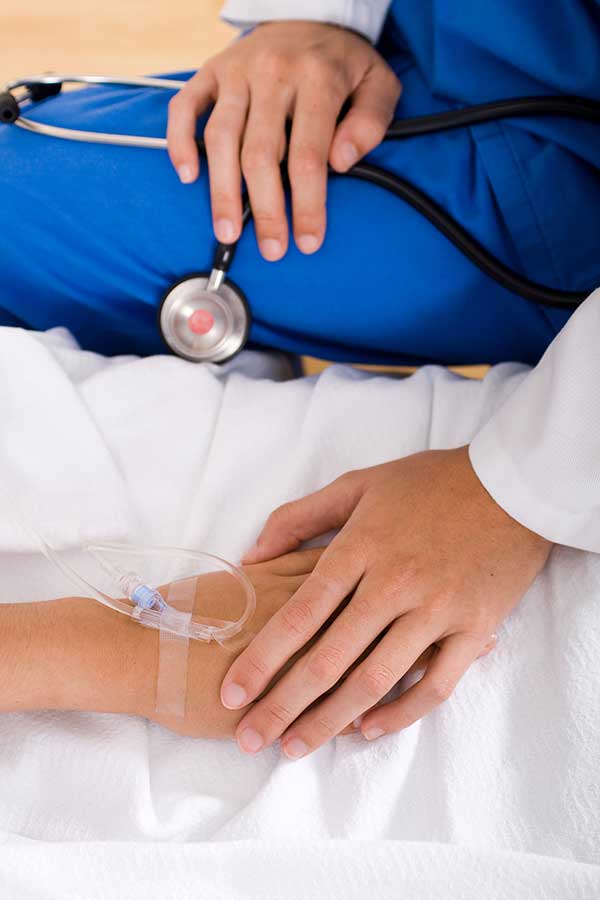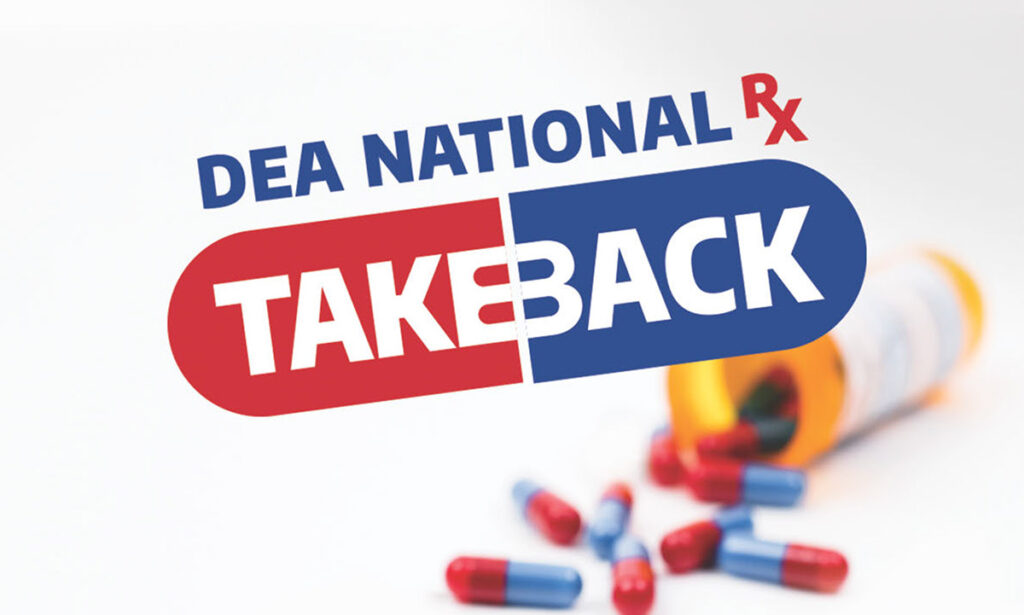Substance use disorder is notoriously hard to treat. Research has shown that most patients treated for alcohol or opioid use disorder relapse within one year. One major problem is that treatment quality and accessibility vary. Medically assisted treatment for opioid use disorder is clinically proven to treat substance dependence and set patients on a favorable recovery trajectory. Yet, access to this type of treatment is minimal, and many patients do not know it is an option. Learn how medically assisted treatment for substance use disorder could help you or a loved one.
What Is Medically Assisted Treatment?
Medically Assisted Treatment is a comprehensive and effective approach for treating individuals struggling with substance use disorders. This treatment is carried out under the supervision of certified addiction medicine doctors in a hospital setting, where the patient’s withdrawal symptoms and vital signs are closely monitored. This medical detoxification procedure aims to ensure the patient’s comfort and safety during opiate withdrawal, leading to improved success rates.
Initially, the Waismann Method was only utilized to treat opioid use disorders, but it has since been expanded to include the treatment of alcohol use disorders. With its evidence-based approach, inpatient medically assisted treatment provides components in the comprehensive care of individuals struggling with substance abuse, promoting a successful and sustainable recovery journey.
To understand how this effective treatment works, knowing why substance dependence develops is helpful.
How Does Opiate Dependence Develop?
Opiates are a type of drug that can cause dependence with regular use over time. Dependence occurs as the brain and body adjust to the presence of the drug, and as a result, withdrawal symptoms can occur when the drug is discontinued. Here’s how opiate dependence develops:
- Tolerance: Over time, the brain adjusts to the presence of opiates and becomes less sensitive to their effects. As a result, the individual may require more of the drug to achieve the same level of pain relief or pleasure.
- Chemical changes in the brain: Opiates interact with specific receptors in the brain, leading to changes in neurotransmitter levels and the functioning of brain circuits. This creates a cycle of dependency where the individual craves the drug to feel normal.
- Physical dependence: The body becomes physically dependent on the drug, and withdrawal symptoms can occur when the drug is discontinued. Withdrawal symptoms can include nausea, vomiting, diarrhea, muscle aches, and agitation.
It is important to note that opiate dependence can develop quickly, especially with frequent and high-dose use. Additionally, long-term use of opiates can lead to lasting changes in the brain and body, making it difficult for the individual to quit without professional support and treatment.
Opiate Withdrawal Symptoms and Effects
Opiates are a type of drug that can cause physical and psychological dependence with regular use. When an individual who is dependent on opiates stops or reduces their use, they may experience a range of withdrawal symptoms. The severity and duration of these symptoms can vary based on several factors, including the type of opiate used, the length of use, and the method of use.
Some common opiate withdrawal symptoms include:
- Physical symptoms: Nausea, vomiting, diarrhea, muscle aches, sweats, and chills are common physical symptoms of opiate withdrawal.
- Psychological symptoms: Anxiety, irritability, depression, and insomnia are common psychological symptoms of opiate withdrawal.
- Cravings: Strong cravings for the drug can persist during withdrawal and may persist even after the physical symptoms have subsided.
- Body pain: Muscular, joint, and abdominal pain is common during opiate withdrawal.
The effects of opiate withdrawal can be uncomfortable and even dangerous, especially for those with underlying medical conditions. It is important for individuals to seek professional help and support during this process. Medically supervised detox and addiction treatment programs can help manage withdrawal symptoms. It also helps reduce the risk of complications and increases the chances of a successful recovery.
 Medically Assisted Detoxification
Medically Assisted Detoxification
In-hospital, medically assisted detoxification provides individuals struggling with opiate addiction a safe, effective, and supportive environment to undergo the withdrawal process. Unlike traditional “cold turkey” methods, this type of detox offers a controlled and medically supervised approach to detox.
The process starts with a comprehensive evaluation by a team of medical professionals. This evaluation takes into account an individual’s medical history, substance use history, psychological state, and other relevant factors. With this information, the team develops an individualized protocol to guide the individual through the withdrawal process.
During detoxification, individuals receive round-the-clock monitoring and medication to alleviate opiate withdrawal symptoms. This helps to ensure the safety and comfort of the individual as they go through the opiate detox process. The use of medications and close monitoring can also help to reduce the risk of complications and promote a successful outcome.
In conclusion, in-hospital detoxification treatment is an important option for individuals struggling with opiate addiction. It provides a safer and more comfortable way to undergo the withdrawal process, with the support of medical professionals, reducing the risk of complications and increasing the chances of a successful recovery.
Medically Assisted Treatment VS Medication-Assisted Treatment (MAT)
Medically assisted treatment and medication-assisted treatment (MAT) are two commonly used terms in the field of substance abuse treatment. Still, they have distinct differences that are important to understand when seeking help for addiction.
Medically assisted treatment involves undergoing detoxification in a medically supervised environment, such as a hospital. A team of medical professionals monitors the individual’s physical and emotional well-being, provides medication to manage withdrawal symptoms, and offers psychological support throughout the detox process. The goal of medically assisted treatment is to support individuals in becoming opioid-free, with a focus on safety, comfort, and success.
In contrast, medication-assisted treatment (MAT) involves using medications to control substance use and prevent withdrawal and cravings. Common medications used in MAT include opioids such as methadone, suboxone, and other buprenorphine-based drugs. These medications work by binding to the same receptors in the brain as opiates, preventing withdrawal symptoms and cravings. However, it is important to note that individuals who undergo MAT are not opioid-free, as they continue to use opioids to control their substance use. If they try to stop using the medication, they may experience withdrawal symptoms that will require additional professional support.
Ultimately, both medically assisted and medication-assisted treatment have unique benefits and limitations, and the right approach will depend on an individual’s specific needs and circumstances. Seeking the guidance of a medical professional can help individuals make informed decisions about the most appropriate approach for their substance abuse treatment.
For over 24 years, people from all over the world have chosen Waismann Method as their opioid detox provider.
We know the challenges you face and the importance of creating a unique and personal experience for you right from the start.Call for Detox Options 1-800-423-2482
Medically Assisted Opiate Withdrawal – Pros and Cons
When it comes to effective treatments for substance use disorder, there is a reason why there is a strong recommendation for medically assisted treatment.
Consider the following advantages:
- Continuous monitoring of patient’s health needs to ensure medical safety.
- Fear of withdrawal is not a deterrent to treatment. If you ask individuals what is preventing them from seeking treatment, fear of withdrawal is often a significant factor. Many people are worried about going through withdrawal in an outpatient detox center, where medical resources are inadequate.
- Medical specialists are widely available in a hospital for a consultation or if an unexpected health event occurs.
- The success rate of completing detox is much higher than other alternative treatments. Medical doctors are the best-trained professionals to manage opioid withdrawal symptoms. Under highly trained staff supervision, a hospital setting is the best environment to achieve an opioid- or alcohol-free state.
- Treatment is discreet and compassionate. Addiction is a source of stigma and shame, which prevents many people from seeking treatment. Medically assisted detoxification, like the Waismann Method, takes place in a full-service hospital with private rooms. Admission to the hospital as if they came in for any other medical conditions and detoxed in a private, safe environment free from judgment.
- It improves the quality of post-detox care. Patients who undergo medically assisted detox can recover physically, mentally, and spiritually; once a person is in an opioid-free state, they are better able to be emotionally present for the next stage of recovery. Participating in a supportive aftercare program allows individuals to address the root causes of substance abuse. The root of the issues might include untreated mental health needs, past trauma, or a social environment that keeps them stuck in unhealthy patterns. An emotionally present person can more effectively engage in therapy after detox.
The Drawbacks
Of course, there are some drawbacks to medically assisted treatment, as with all medical procedures. Medically assisted treatment works best when patients are ready and willing to undergo detox. It is less effective for people who are not yet prepared to become opioid-free or alcohol-free. For these individuals, an option like medication-assisted treatment could be acceptable. However, medication-assisted treatment is much more effective as a temporary step toward recovery, not as a permanent solution.
Medically Assisted Detox Near Me
Are you wondering if there is medically assisted treatment near? Waismann Method® offers a caring, compassionate environment in which to undergo detoxification from opioids or alcohol. We have been providing rapid detox and medically assisted treatment programs for substance use disorder since 1998. Our team has a wealth of experience, enabling you or your loved one to get the best available care.
At Waismann Method®, our goal is to heal our patients and free them from opioid dependence so they can start the path to a healthier lifestyle. We use the latest scientific methods to treat opioid and alcohol dependence. As a result, nearly 100% of our patients have achieved successful detox.
After completing detoxification, our patients enter our exclusive Domus Retreat. This short-term recovery center provides a safe haven and post-detox care as people regain strength to start the healing process physically and mentally. Combining individualized treatment protocols, successful medical detoxification, and supportive recovery care sets the Waismann Method apart as a safe, effective, and compassionate treatment option for substance use disorder.
Waismann Method Difference
The Waismann Method® is a leading provider of medically assisted detoxification for individuals struggling with opioid addiction. Our approach is unique in that we do not rely on the use of addictive drugs, such as Methadone or Suboxone, in our treatment plan.
Our dedicated team of medical professionals commits to ensuring every patient experiences a safe, comfortable, and successful withdrawal process. With a nearly 100% success rate in detoxing from opioids, we are confident in our ability to provide the support and care necessary to help individuals begin their journey toward recovery.
We personalize the treatment length for each patient based on their individual health needs, and it typically lasts between 7 and 10 days. Our goal with the Waismann Method is to help patients overcome opioid addiction and begin their path toward a healthier, drug-free future.
 Medically Assisted Detoxification
Medically Assisted Detoxification







